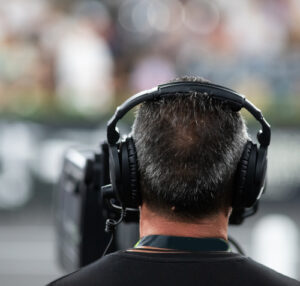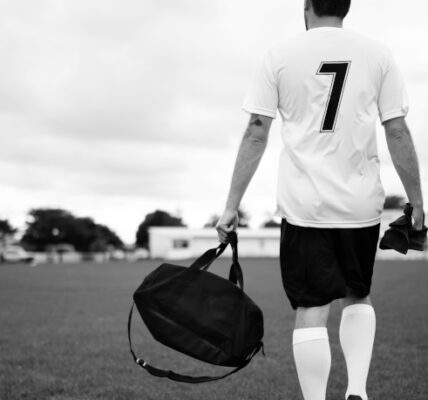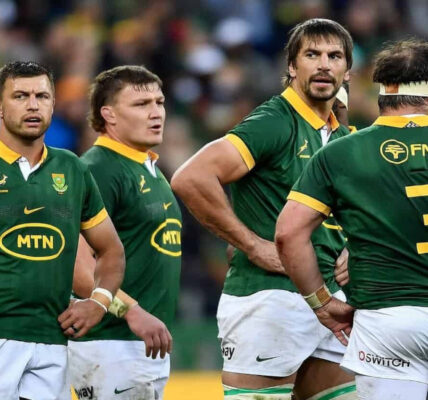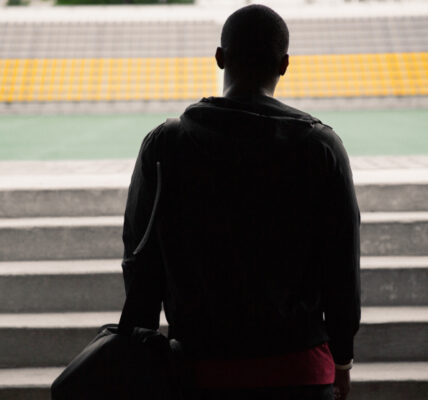There’s a small, dimly lit room inside a crumbling radio station just off Umbilo Road in Durban. The carpet smells of dust and old vinyl. On a metal shelf in the corner sits a stack of tapes, reel-to-reel spools marked with scribbled names, “Sharks vs Bulls, 1983,” “Natal Cup Final 1977,” “Springbok Tour Broadcast, 1986.” Few people have listened to them in decades. For those who grew up in KwaZulu-Natal before rugby was beamed in high definition into every living room, these tapes aren’t just recordings. They are echoes. Echoes of men whose voices painted the game when there were no screens, commentators who called out every scrum and tackle, turning rough collisions into poetry through nothing but airwaves and instinct.
These weren’t television celebrities. They weren’t faces on billboards. Often, they didn’t even sign autographs. But to a generation, the likes of Sipho Mbele, Johan “Big J” Botha, and Thabiso Nxumalo were rugby.
Sipho Mbele’s voice was legend around Empangeni. A baritone smoothed out with radio static, he had the rare ability to make a line-out feel like theatre. “Up he goes, like a man reaching for his father’s star,” he once said during a Natal vs. Western Province match in 1982. That phrase was scrawled on more than one school notebook.
Most of these commentators worked double lives. By day, they were teachers, bus drivers, or office clerks. By weekend, they’d step into booths perched above rickety stadium seating, balancing paper notes on one knee and a coffee flask on the other. Their salary wasn’t grand, often just petrol money and a lunch, but the pull of being part of the game was worth it.
Many used makeshift equipment, tape recorders that hissed and microphones rigged with bits of foam to cut the wind. “We didn’t have proper headsets,” recalls Peter Govender, now retired and living in Amanzimtoti. “You had a mic stand and a thermos. That was it. And your voice.”
And what voices they were. Some were clipped and precise, narrating with the seriousness of a war correspondent. Others leaned into drama, stretching vowels, letting silences fall heavy between plays. Listeners would sit in cars, in shebeens, in living rooms gathered around kitchen radios, hanging on every word.
In rural KZN towns like Nongoma or Ladysmith, where TV signals came patchy if at all, these broadcasts weren’t background noise. They were communal events. A taxi rank would pause. Shops would turn down music. A try wasn’t just a try, it was a shared, invisible experience, carried on signal waves across sugarcane fields and township rooftops.
 But time moved on. By the late 90s, FM radios started giving way to satellite dishes and streaming apps. Commentators’ names slipped from public memory. Many retired quietly. Some passed away without obituaries beyond local papers. Their tapes, if they survived at all, ended up boxed away in backrooms or donated to small archives like the Durban Sound Memory Project, where volunteers now painstakingly digitise whatever they can before time erases the rest.
But time moved on. By the late 90s, FM radios started giving way to satellite dishes and streaming apps. Commentators’ names slipped from public memory. Many retired quietly. Some passed away without obituaries beyond local papers. Their tapes, if they survived at all, ended up boxed away in backrooms or donated to small archives like the Durban Sound Memory Project, where volunteers now painstakingly digitise whatever they can before time erases the rest.
Listening to those old reels today, it’s striking how different the pace feels. There’s no flashing scoreboard graphic. No split-screen replays. It’s pure focus, the squeak of boots on grass, the gust of coastal wind against the mic, and that steady voice threading everything together. It wasn’t about instant replays or celebrity interviews. It was about rhythm and presence. Making listeners feel like they were there, even when “there” was miles away.
There’s talk now, quiet, informal, about putting together a permanent digital archive of KZN’s lost rugby broadcasts. Some have suggested re-airing classic games on community radio. Others envision a small exhibit at Kings Park, where visitors could sit in a sound booth and hear old voices calling out games long since finished.
Peter Govender doesn’t care much about the fame. But he does keep one tape. Sharks vs. Lions, 1991. His own voice, raw and hopeful. “I listen to it on my birthday,” he says. “Reminds me we were there, you know? We were part of it.”
In a province that has always balanced history with hustle, remembering the invisible artists of rugby radio isn’t just nostalgia. It’s a quiet reminder that the game’s pulse beats beyond the pitch. It’s in the voices that carried it. And sometimes, all it takes is an old tape machine and a little patience to hear them again.
,




